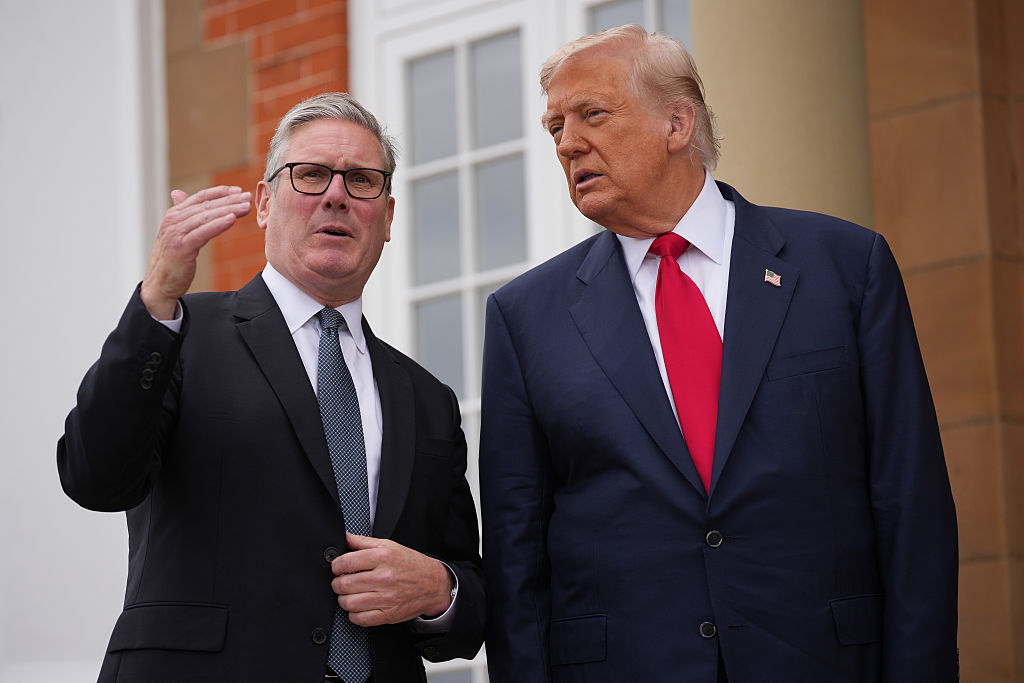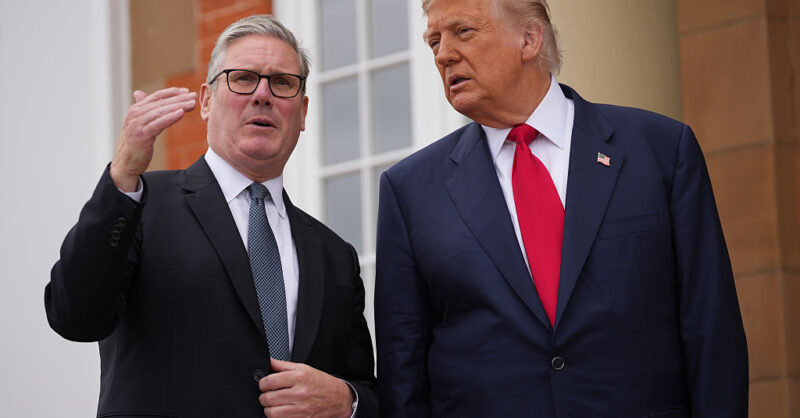
Photo by Christopher Furlong/Getty Images.
This summer, in between hosting JD Vance at Chevening and visiting Switzerland, David Lammy has been reading Edward Luce’s Zbig: The Life of Zbigniew Brzezinski. The book charts the intellectual and political rivalry between the Polish-born US diplomat and Henry Kissinger. While Kissinger championed a foreign policy centred on the great powers – an approach Lammy regards as “cynical” – Brzezinski consistently advocated for smaller countries, noting how they can act as “geopolitical pivots” (a world-view that has influenced the Foreign Secretary’s “progressive realism”).
Contemporary examples are not hard to find. As Donald Trump and Vladimir Putin prepare to meet in Alaska on Friday, the question is whether Ukraine will merely be a spectator to its fate or, as Brzezinski would have wanted, a participant.
For Volodymyr Zelensky, Trump’s election appeared to promise the worst. The US president had praised Vladimir Putin’s 2022 invasion of Ukraine as “genius” and repeatedly hailed his leadership of Russia. It was no surprise, then, when Trump treated Zelensky as a helpless vassal during their Oval Office encounter back in February.
Ever since, through patient diplomacy, the UK has sought to bridge the gap between Ukraine and the US. Rather than rushing to denounce Trump for his treatment of Zelensky, Keir Starmer “hit the phones”. Ahead of today’s virtual meeting between European leaders and Trump, No 10 has similarly avoided making public demands of the US president. The UK government’s position, insiders emphasise, remains unchanged: any peace deal must be agreed with Ukraine rather than “imposed” upon it and must be backed by security guarantees that will deter Russia from attacking again. But unlike Emmanuel Macron and Friedrich Merz, Starmer has avoided publicly demanding that Zelensky be present at the Alaska summit.
After the nadir of the Oval Office meeting, government officials insist that there are encouraging signs. They point to Trump’s increasingly public anger over the war – “It’s disgusting what they’re doing,” he declared of Putin’s actions earlier this month – and the announcement of sanctions on India over its purchase of Russian oil.
But the danger is clear: that Trump resolves to impose a land-swap deal on Ukraine – weighted in Russia’s favour – and declines to offer any security guarantees to Zelensky. (With this risk in mind, Starmer will co-chair a meeting of the “coalition of the willing” this afternoon, after their call with Trump.)
For Starmer, there is domestic as well as international peril in any capitulation by Trump to Putin. The British public is among the most pro-Ukraine in Europe: 79 per cent believe that protecting Ukrainian sovereignty matters to the UK, a sentiment shared across all voter groups, including nearly two thirds of Reform supporters.
Subscribe to The New Statesman today from only £8.99 per month
Britain has consistently sought to flatter Trump into a just peace (as opposed to insulting him). “What I do know about Donald Trump is that he doesn’t like losers and he doesn’t want to lose; he wants to get the right deal for the American people,” Lammy told me last year. “And he knows that the right deal for the American people is peace in Europe and that means a sustainable peace – not Russia achieving its aims and coming back for more in the years ahead.”
The latter scenario is precisely what Zelensky is now invoking. “We will not leave Donbas. We cannot do this… Donbas for the Russians is a springboard for a future new offensive,” he has warned.
The question, then, is whether Ukraine’s fate will be one in which the strong do what they can and the weak suffer what they must or whether, as Brzezinski intended, a more enlightened outcome is possible.
This piece first appeared in the Morning Call newsletter; receive it every morning by subscribing on Substack here
[See also: Visions of an English civil war]
Content from our partners

